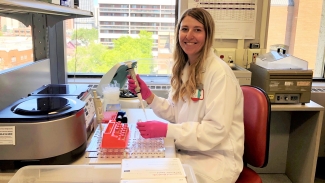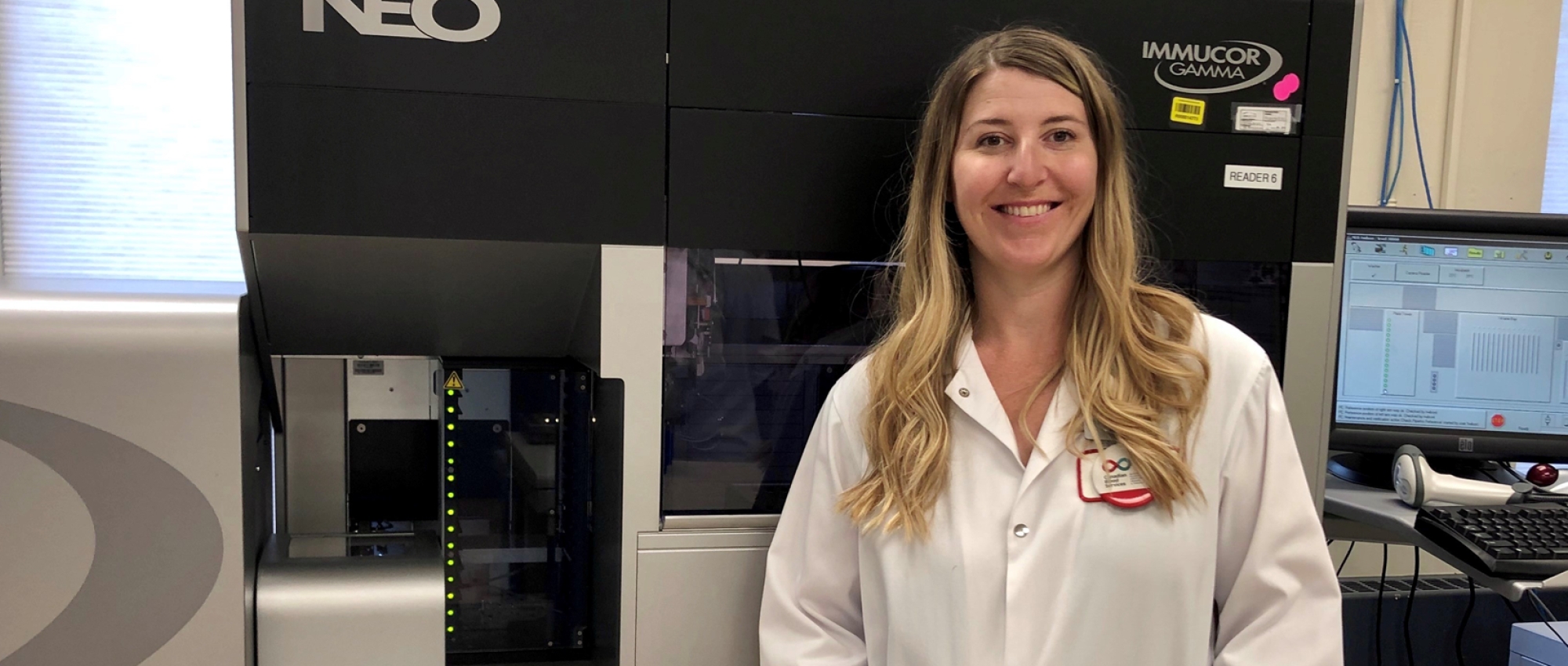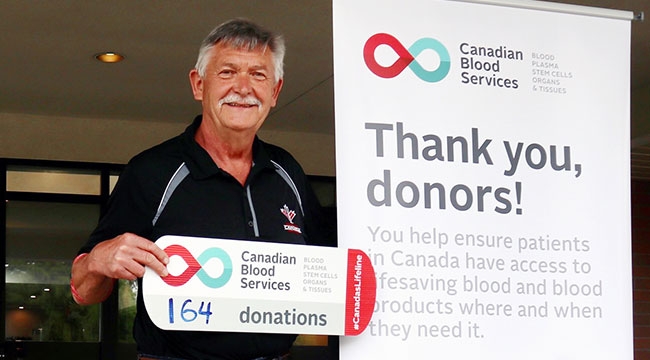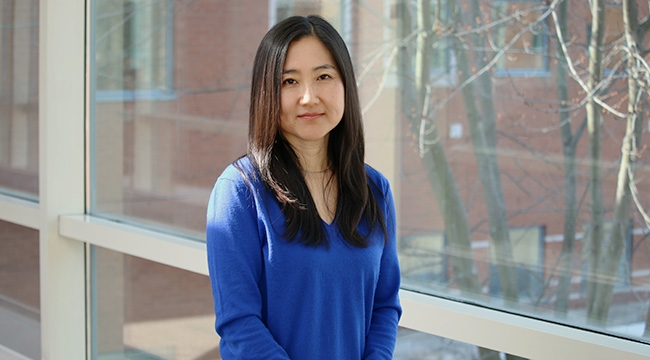‘This work can reach and serve anyone’
Tara Wilson tests blood donations for safety and suitability in Calgary, Alta.
During the COVID-19 pandemic, we’re bringing you stories of our employees who continue to work on the front lines. Tara Wilson is a medical laboratory technologist in Calgary, Alta.
I joined Canadian Blood Services about eight years ago. I’m part of the team in Calgary that tests all the donations collected in western Canada. When I’m explaining the job to someone who doesn’t work here, I’ll say we make sure the blood is safe. We do all the mandatory tests on every donation that comes through the door, including tests for diseases that can be transmitted by blood.
What do I like best about my job? I like that every single day I have a purpose. This work can reach and serve anyone.
‘There are no shortcuts’
Donor testing is essential, so we had to adapt very quickly to the pandemic. Our team in Calgary divided into two groups to work separately. That was so if one group was affected by an outbreak of COVID-19, the other employees would not be exposed and could still come to work.
We also have markings on the floor to help us keep two metres apart from one another. And we’re wearing masks for our entire shift. These are big changes since we usually have daily huddles and a lot of face-to-face conversations. Now we have to rely a lot more on email and notes to one another, especially since our shifts are now scheduled to avoid any overlap.
In testing, there are no shortcuts, no cutting corners. We do things the same way every single time. That’s been challenging because our samples come to us from across western Canada, and the pandemic caused shipping delays at times. So we’d be anxiously waiting for a shipment in the first half of a shift, and then be under a lot of pressure in the second half to complete the work. I’m happy to say we’ve been able to adapt and get the job done.

‘Finding a match is a group effort’
One of the most rewarding parts of my job is finding donations to match patients with rare blood types. We do this by running extra tests to check for specific combinations of antigens, which are molecules on the surface of our red blood cells.
It’s a process of elimination to find a match. You may need to test a single sample many times to find out if it matches several antigens. We have an instrument that can analyze dozens of samples at once, but sometimes we also need to do testing manually. Finding a match is a group effort, and we can spend days or even weeks working on a particular case.
Usually, I get to know these patients only by their initials and date of birth. If we’ve helped them a few times, I might start to recognize their phenotype, the characteristics of their specific blood. I’ll see some new test results and say to myself, “oh, that’s a match for R.R., who we were working on last month.” We’re always working on expanding our database of donors with rare blood types, so when I spot one, it makes me happy!
I did recently have the experience of learning more about a patient I helped. This was a little girl in B.C. who we knew by the initials A.M. She has sickle cell disease and she needed a lot of transfusions in the spring. My colleagues in donor testing in Calgary and I helped to identify matching donors for her.
Aaliyah’s army: How blood donors helped one child survive during a pandemic
We help a lot of sickle cell patients who need regular transfusions, but in this case we also received a letter of thanks from the little girl’s doctor. Her parents expressed their gratitude as well, and that was very emotional for me. I have young children myself and I feel for this family. To be able to help a little girl who is so innocent and vulnerable, there’s no other driving force like that. That’s my purpose here, my meaning.



